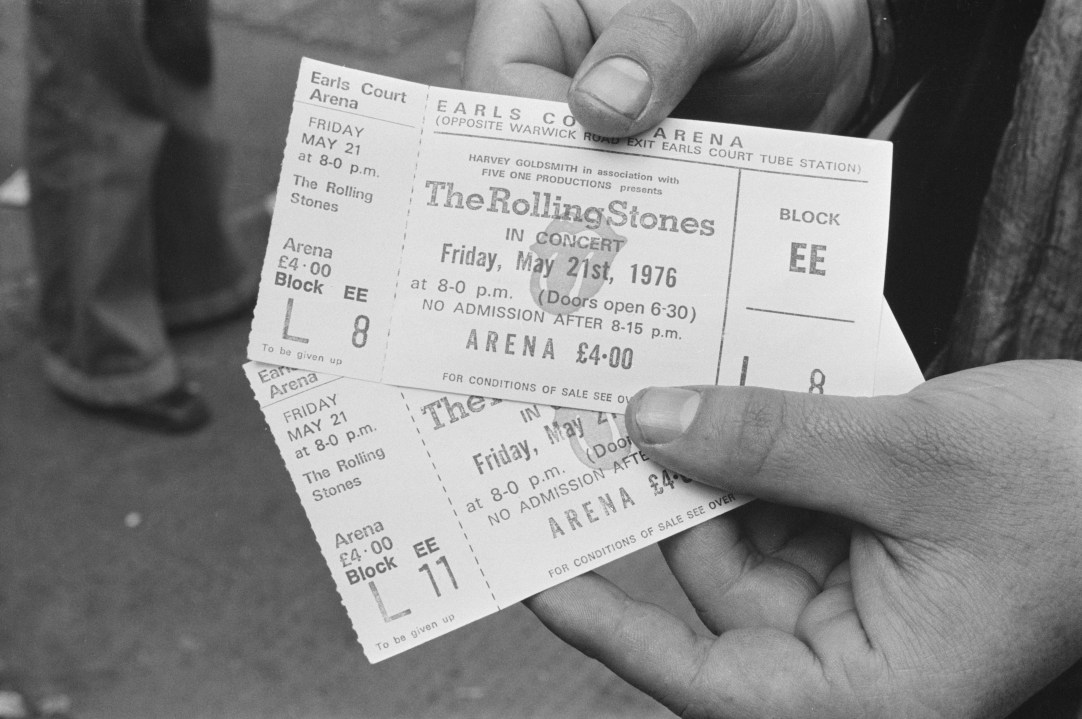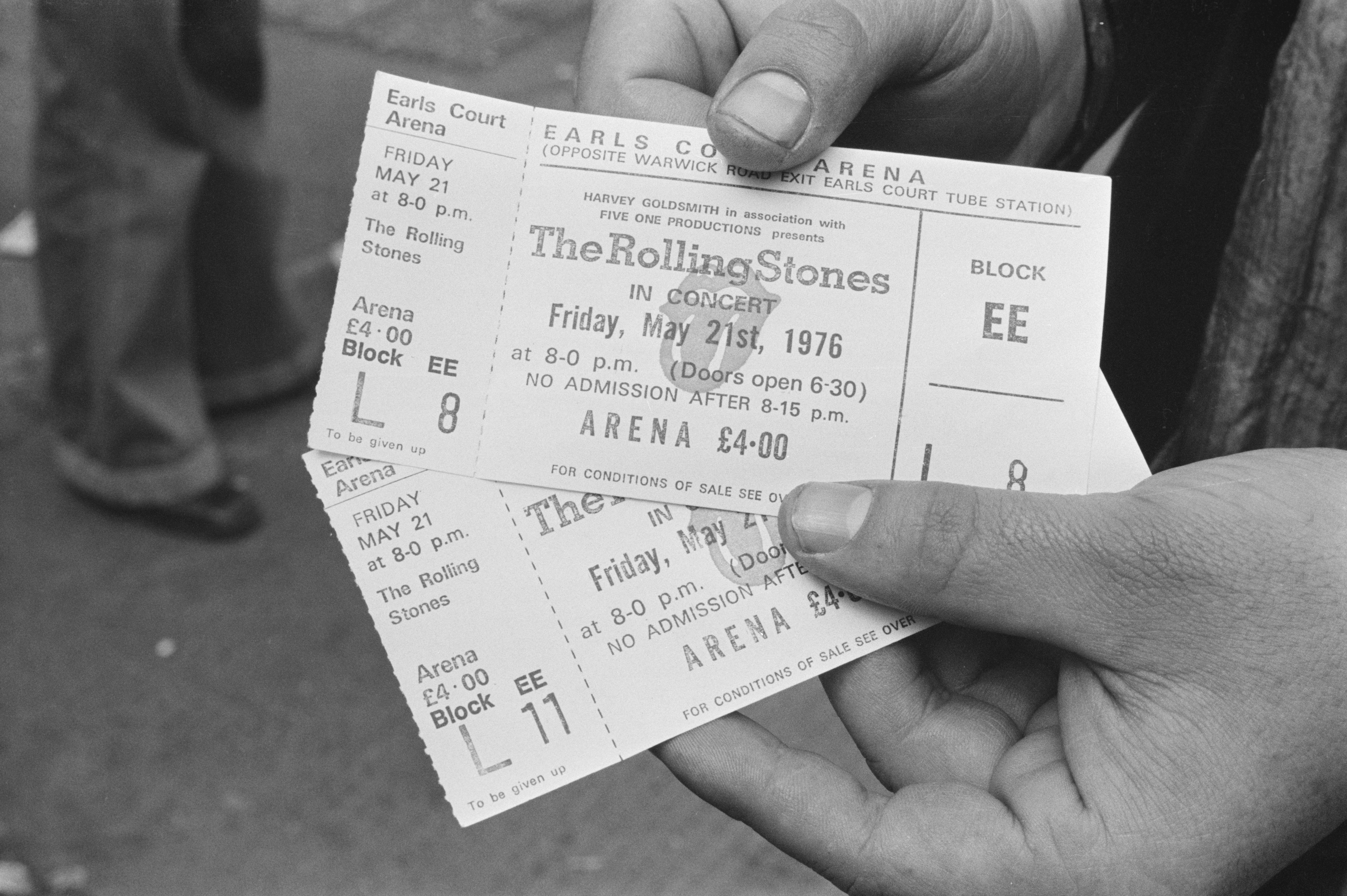My wife had a brilliant idea for my 12-year-old daughter’s Christmas present: tickets to go and see Sigrid (a pop act, apparently, m’lud) at Wembley. She sent me a link. Quick, quick, I thought: get them while they’re hot. I clicked through and bought three old-fashioned physical tickets. I sucked up the delivery fee because I imagined, sentimentally, my daughter looking back years later on those yellowing stubs and remembering her first ever gig.
First mistake: the site I’d clicked on was the resale site Viagogo. I should have checked the venue’s own ticketing site but I was on my phone, I’d clicked on the link my wife had sent me, it looked legit and I was worried these things would sell out instantly. So I was paying double the face price. But fine, that’s on me. Yet a couple of days later Viagogo emailed to announce they were changing the tickets from paper tickets to e-tickets and so refunding me a couple of quid in delivery charges. I contacted them to say, thanks, but I bought hard copy tickets — advertised on the site as collectable souvenirs — because those were what we specifically wanted.
The scene that followed would have given my friends and enemies alike a laugh: yours truly, confined at home with Covid in his rumpled dressing-gown, sending a series of increasingly less politely worded messages to Viagogo’s customer service department in a digital reboot of Little Malcolm and His Struggle Against the Eunuchs.
Viagogo presents itself as a reputable business. It boasts of being the largest ticket resale website in the world
Me: ‘You’re not sending me what I bought. I’d like you to cancel the transaction and refund me.’ Sergio in customer service: ‘All orders are non-exchangeable/refundable’. Me: ‘You’re the ones trying to exchange the tickets, not me. I direct you to para 2:11 of your own terms and conditions’. Sergio: ‘Thank you for contacting us regarding your order. Your seller has informed us that they have e-tickets.’ Me: ‘If I order a steak in a restaurant and they serve me a hamburger, I’m entitled to my money back.’ Sergio: ‘The event organizer has decided to change the ticket from Paper to E-tickets that the reason [sic] why we change the ticket type in your purchase.’ (I eventually asked Sergio for his full name for the record, and he was immediately replaced by a MarkJay, who was no more helpful.)
Now, here’s the thing. I was intrigued by this last claim. In some ways, of course, it’s by the by. If you offer something for sale that you can’t then deliver, that’s your problem rather than the customer’s. But I also thought: what are the chances that a venue like Wembley decides abruptly to change its ticketing system once the tickets have already gone on sale? I asked Wembley’s official ticketing partner AXS about it. They told me that not only did they not have a sudden change of heart, but that physical tickets for the show have not been and never were on sale. I was offered, and bought, something that didn’t exist. And Viagogo’s explanation wasn’t true.
Folks, if this were a random rip-off I suffered on eBay, I would not be troubling your attention with it. Rube gets conned. No story. But Viagogo presents itself as a reputable business. It boasts of being the largest ticket resale website in the world, and a Which? survey found that 49 per cent of people who bought tickets from it thought it was an official vendor. Yet its reviews on Trustpilot indicate that my experience is far from an outlier. There’s even a social media hashtag #vofv — victims of Viagogo — for people who’ve had issues with the site.
I spoke, too, to Reg Walker, a security consultant at the Iridium Consultancy who has been investigating ticket touts for 30 years. He told me that not only was this representative: it is, in his view, how it works. ‘They rely on the fact that consumers carry on banging their head against the wall for so long eventually they get a headache and give up. It’s part of the Viagogo business model.’
The reason they don’t simply refund the dough and reclaim it from the vendors, he believes, is that the site is ‘desperate for money’ after borrowing to the hilt to buy its rival StubHub just before Covid shut down live events everywhere. ‘They’re not going to piss touts off, because that’s their bread and butter.’ The site depends on touts for its very existence: ‘There simply is not the volume of customers listing tickets they can’t use to keep these sites going.’
He believes Viagogo deserves to be investigated, adding: ‘Viagogo does business with ticket touts who commit offences to harvest tickets in bulk and engage in mass fraud. Those tickets once obtained by a criminal offence are criminal property. And they take a service fee: 28 per cent. That’s benefiting from the proceeds of crime.’
So why is it not being properly investigated? According to Reg, it’s that it falls between several stools. The CMA — the regulatory body that oversees this industry — treats secondary ticketing as a civil matter and say their remit doesn’t extend to investigating fraud (they have a 2018 court order against Viagogo that has never even been used). And the notoriously under-resourced Action Fraud focuses, as would seem natural, on individuals getting scammed out of their savings: ‘It doesn’t capture that secondary ticketing in the UK is a £350 million a year business that leaves tens of thousands of victims out of pocket.’
Including, of course, me and my twelve-year-old daughter. I’d be interested to hear from others about their experiences with Viagogo. I may return to the subject.








Comments